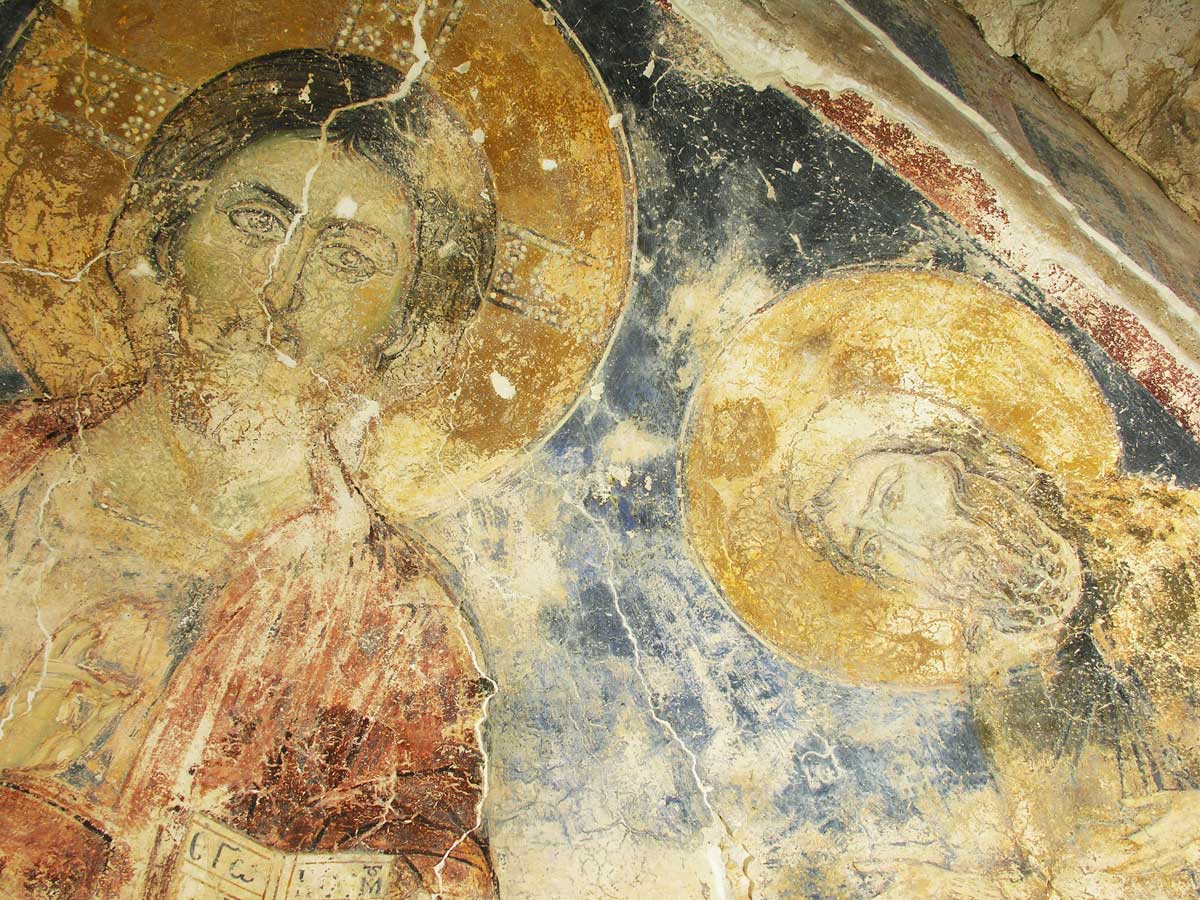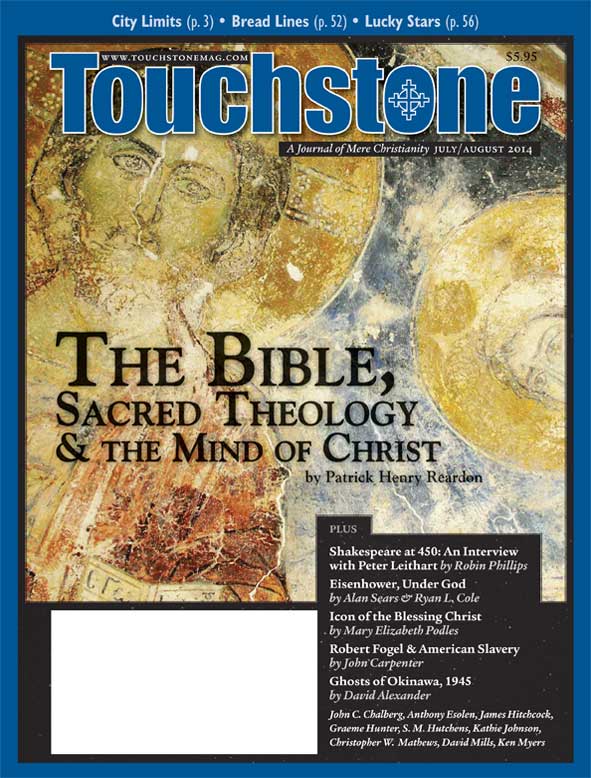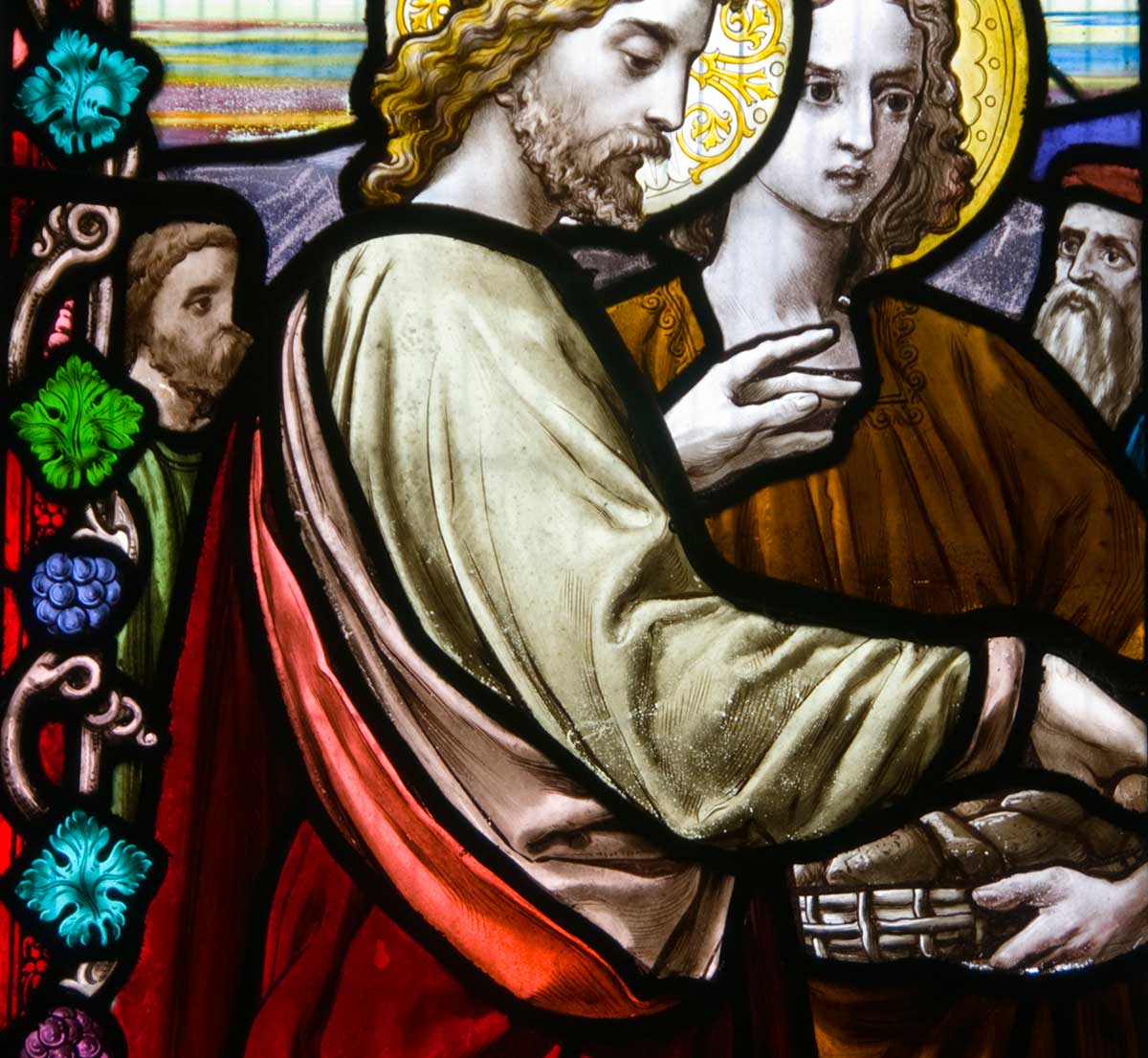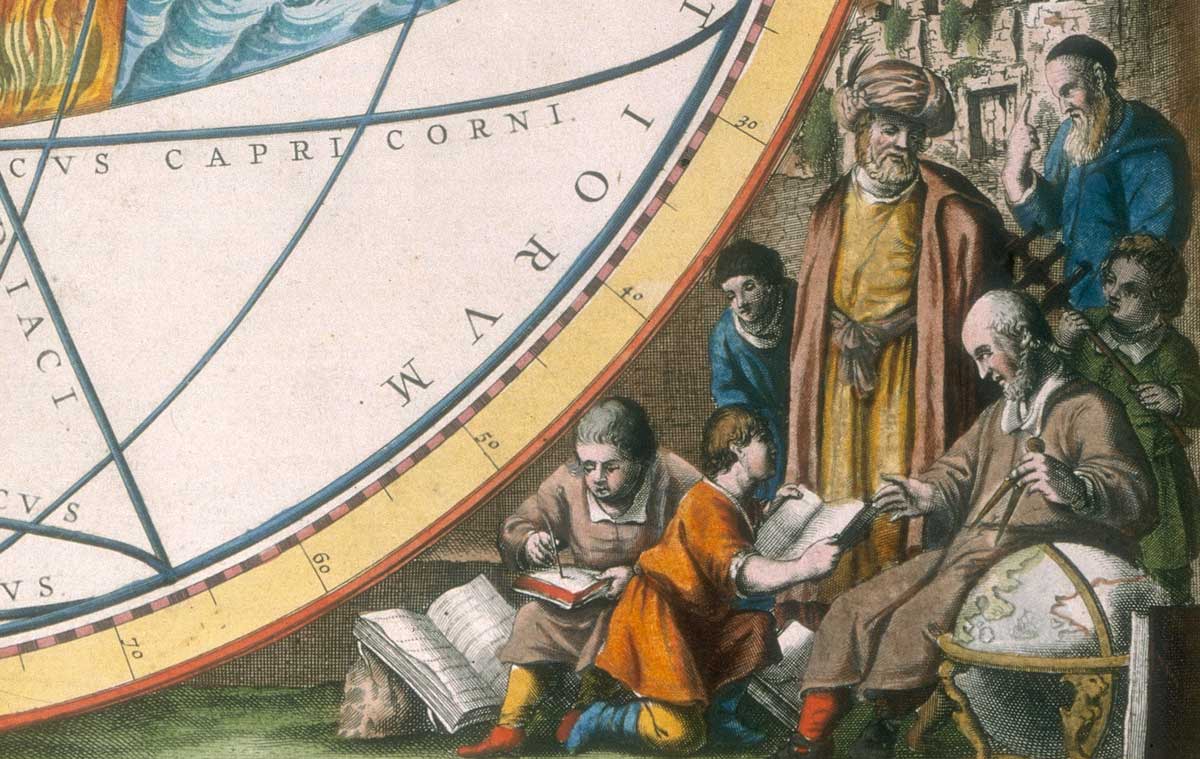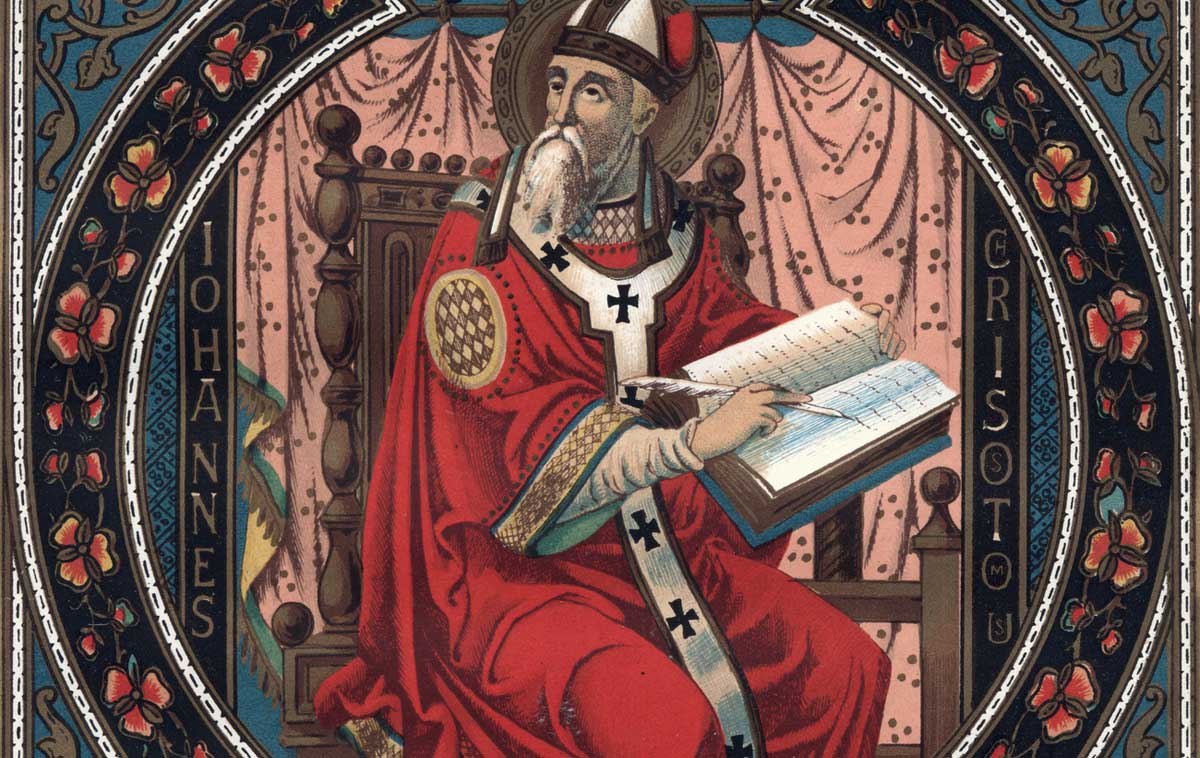Feature
The Things Freely Given
The Bible, Sacred Theology & the Mind of Christ
Having been asked to present some reflections on the theme, "What is the Bible?" it seems appropriate to begin this essay with a passage from Sacred Scripture.
Indeed, I want to begin these reflections by analyzing and comparing two passages from the New Testament, one from the second chapter of 1 Corinthians and another from the eleventh chapter of the Gospel according to Matthew. Each of these chapters contains a contrast between the wisdom of fallen man and the wisdom God gives to those who believe in his Son.
Thus, 1 Corinthians 2 takes issue with those Christians at Corinth who boasted of their superior wisdom, which St. Paul was careful to distinguish from the wisdom of God revealed in the Cross. The apostle writes, "We speak the wisdom of God hidden in a mystery, which God ordained before the ages for our glory, which none of the rulers of this age knew; for had they known, they would not have crucified the Lord of glory."
Paul goes on to comment, "But the carnal man does not receive the things of the Spirit of God, for they are foolishness to him; nor can he know them, because they are spiritually discerned."
When we turn to Matthew 11, these carnal men, those who do "not receive the things of the Spirit of God," are the citizens of Chorazin, Bethsaida, and Capernaum, who refused to believe the gospel. Jesus, immediately after pronouncing his "woes" against them, went on to identify their moral problem. His prayer, Matthew indicates, was an "answer" to the previous curse. Jesus prayed, "I thank you, Father, Lord of heaven and earth, that you have hidden these things from the wise and prudent and have revealed them to babies."

The distinction between ungodly wisdom and the wisdom of the gospel is the setting in which St. Paul declares what I take to be the subject matter of Sacred Theology; that is to say, the knowledge of ta charisthenta—"the things freely given." Paul writes, "Now we have received, not the spirit of the world, but the Spirit who is from God, that we might know the things freely given to us by God."
The expression, "things freely given," is plural, ta charisthenta. In the context of 1 Corinthians 2, these "things freely given" pertain to Paul's reference just a few verses earlier: "we speak the wisdom of God in a mystery." For Paul, "the wisdom of God"—Theou sophia—is God's redemptive design, which is concealed in the logos tou stavrou, the"word of the Cross."
The expression, "things freely given to us by God," indicates a cognitive plurality in the wisdom of God. That is to say, in the proclamation of "the word of the Cross," it is necessary to employ various words and concepts to designate aspects and dimensions of the "wisdom of God." The proclamation is discursive. Paul goes on: "These things we also speak, not in words taught by human wisdom, but taught by the Spirit—en didaktois Pnevmatos—comparing spiritual things with spiritual."
The Theological Enterprise
Patrick Henry Reardon is pastor emeritus of All Saints Antiochian Orthodox Church in Chicago, Illinois, and the author of numerous books, including, most recently, Out of Step with God: Orthodox Christian Reflections on the Book of Numbers (Ancient Faith Publishing, 2019).
subscription options
Order
Print/Online Subscription

Get six issues (one year) of Touchstone PLUS full online access including pdf downloads for only $39.95. That's only $3.34 per month!
Order
Online Only
Subscription

Get a one-year full-access subscription to the Touchstone online archives for only $19.95. That's only $1.66 per month!
bulk subscriptions
Order Touchstone subscriptions in bulk and save $10 per sub! Each subscription includes 6 issues of Touchstone plus full online access to touchstonemag.com—including archives, videos, and pdf downloads of recent issues for only $29.95 each! Great for churches or study groups.
Transactions will be processed on a secure server.
more on bible from the online archives
more from the online archives
calling all readers
Please Donate
"There are magazines worth reading but few worth saving . . . Touchstone is just such a magazine."
—Alice von Hildebrand
"Here we do not concede one square millimeter of territory to falsehood, folly, contemporary sentimentality, or fashion. We speak the truth, and let God be our judge. . . . Touchstone is the one committedly Christian conservative journal."
—Anthony Esolen, Touchstone senior editor





